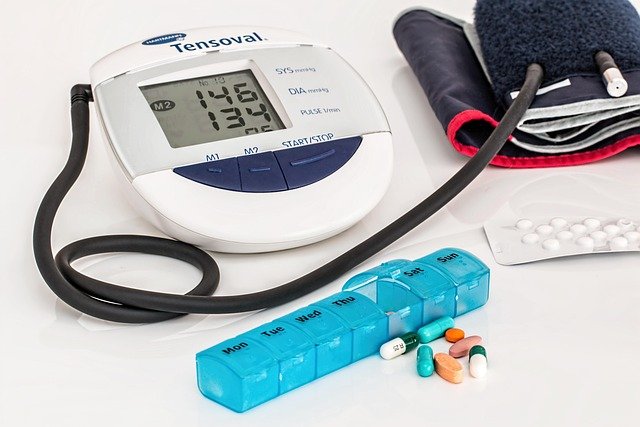Understanding Acid Reflux: From Symptoms to Treatment Options
Acid reflux occurs when stomach acid flows back into the esophagus, causing discomfort or heartburn. Contributing factors include diet, obesity, smoking, and certain medications. Persistent reflux, known as GERD, may require medical management and lifestyle adjustments.

What Are the Main Causes of Acid Reflux?
Understanding the causes of acid reflux helps in both prevention and treatment. The condition occurs when the lower esophageal sphincter, a ring of muscle that acts as a valve between the esophagus and stomach, weakens or relaxes inappropriately. Several factors contribute to this dysfunction, including dietary choices, lifestyle habits, and underlying medical conditions.
Certain foods commonly trigger acid reflux episodes. Spicy foods, citrus fruits, tomatoes, chocolate, caffeine, and fatty or fried foods can increase stomach acid production or relax the esophageal sphincter. Carbonated beverages and alcohol also frequently contribute to symptoms. Additionally, eating large meals or lying down shortly after eating can promote acid reflux by increasing pressure on the stomach and allowing acid to flow upward more easily.
Medical conditions and medications can also influence acid reflux development. Hiatal hernia, pregnancy, obesity, and certain connective tissue disorders increase the risk. Some medications, including certain pain relievers, muscle relaxers, and blood pressure medications, may contribute to symptoms by affecting the esophageal sphincter’s function.
How to Recognize Signs of Acid Reflux
Identifying signs of acid reflux enables early intervention and appropriate treatment. The most common symptom is heartburn, characterized by a burning sensation in the chest that often worsens after eating or when lying down. This discomfort typically begins behind the breastbone and may radiate upward toward the throat.
Regurgitation represents another frequent sign, involving the sensation of acid or food coming back up into the throat or mouth. This symptom often accompanies a sour or bitter taste and may occur particularly at night or when bending over. Some individuals experience difficulty swallowing, known as dysphagia, which can feel like food is stuck in the throat or chest.
Less obvious signs include chronic cough, hoarseness, throat clearing, and the sensation of a lump in the throat. These symptoms result from acid irritating the upper respiratory tract and vocal cords. Some people also experience chest pain that can mimic heart-related conditions, making proper medical evaluation important for accurate diagnosis.
Effective Treatment Approaches for Acid Reflux
Acid reflux treatment typically begins with lifestyle modifications and dietary changes. Healthcare providers often recommend eating smaller, more frequent meals rather than large portions, avoiding trigger foods, and maintaining an upright position for at least three hours after eating. Weight management plays a crucial role, as excess weight increases abdominal pressure and promotes reflux.
Elevating the head of the bed by six to eight inches can help prevent nighttime symptoms by using gravity to keep stomach contents in place. Avoiding tight-fitting clothing around the waist and quitting smoking also contribute to symptom improvement, as these factors can increase abdominal pressure or relax the esophageal sphincter.
When lifestyle changes prove insufficient, medications offer additional relief options. Over-the-counter antacids provide quick but temporary relief by neutralizing existing stomach acid. H2 receptor blockers reduce acid production for longer periods, while proton pump inhibitors offer the most potent acid suppression for severe or persistent symptoms. Healthcare providers may prescribe stronger versions of these medications or recommend combination therapies based on individual needs and symptom severity.
Treatment costs for acid reflux vary significantly depending on the approach and severity of symptoms. Over-the-counter medications typically range from $5 to $25 per month, while prescription medications can cost $30 to $300 monthly without insurance coverage. Specialist consultations generally range from $200 to $500 for initial visits, with follow-up appointments costing $150 to $300.
| Treatment Type | Provider/Option | Cost Estimation |
|---|---|---|
| Over-the-counter antacids | Pharmacy chains | $5-15 per month |
| Prescription H2 blockers | Healthcare providers | $30-100 per month |
| Proton pump inhibitors | Gastroenterologists | $50-300 per month |
| Specialist consultation | Medical centers | $200-500 initial visit |
| Diagnostic procedures | Hospitals/clinics | $500-2,000 per test |
Prices, rates, or cost estimates mentioned in this article are based on the latest available information but may change over time. Independent research is advised before making financial decisions.
For severe cases that don’t respond to conservative treatment, surgical options may be considered. Fundoplication, a procedure that strengthens the lower esophageal sphincter, offers long-term relief for appropriate candidates. Newer minimally invasive procedures, such as magnetic sphincter augmentation, provide additional options with shorter recovery times.
Creating a Comprehensive Management Plan
Successful acid reflux management often requires a multifaceted approach combining lifestyle modifications, dietary changes, and appropriate medical treatment. Working with healthcare providers helps ensure proper diagnosis and treatment selection while monitoring for potential complications such as esophageal damage or Barrett’s esophagus.
Regular follow-up appointments allow for treatment adjustments and symptom monitoring. Many individuals find that maintaining a food and symptom diary helps identify personal triggers and track treatment effectiveness. This information proves valuable for healthcare providers when making treatment recommendations or adjustments.
Understanding acid reflux empowers individuals to take an active role in their treatment while working collaboratively with healthcare professionals. With proper management, most people with acid reflux can achieve significant symptom relief and maintain their quality of life. Early intervention and consistent treatment adherence remain key factors in preventing complications and ensuring long-term digestive health.
This article is for informational purposes only and should not be considered medical advice. Please consult a qualified healthcare professional for personalized guidance and treatment.




